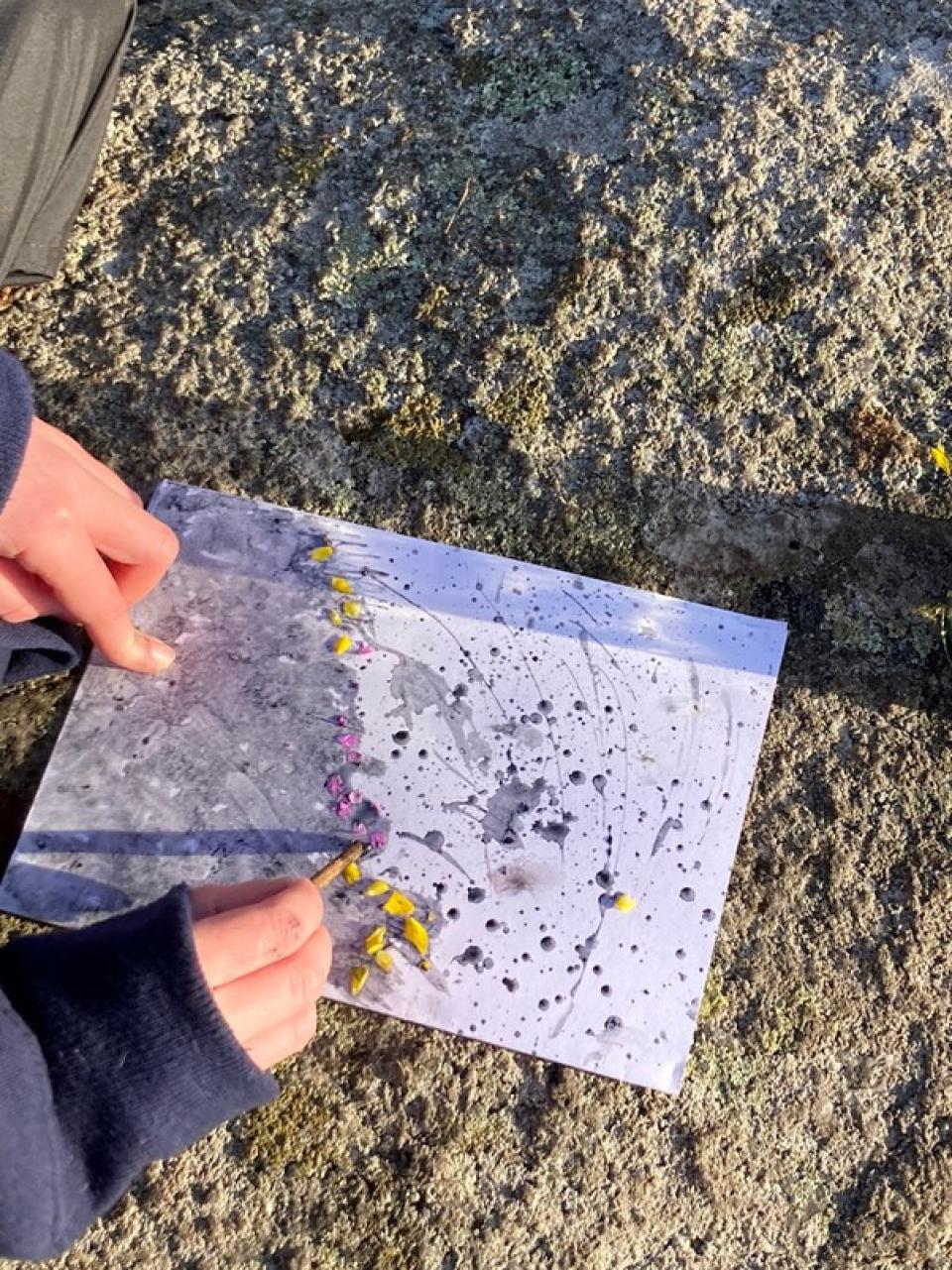
Forest School

Forest School provides a wonderful space for students to be creative
Dalkey School Project (DSP) has a well-established Forest School. The aim of the Forest School is to foster resilient, independent, confident, and creative learners using a flexible approach to learning and natural resources. Free play in a space free with nothing but nature, children are supported to sharpen their own imagination, creativity, thinking, observations, judgements, and senses. The structure of each lesson allows children to build connection with themselves through sit spots, and each other through games and teamwork.
A sample session
It was a lovely summery day for the fifth Forest School session. While waiting for everyone, one of the children noticed that some of the cherries were getting red, and another child discovered that she could stick an ash key to her face.
In the opening circle, many children wanted to share their news over the last week. One of the children shared that his parents had told him that the three-cornered leek originally came from England. Another child said that she had elder flower tea at home over the weekend. It is great to hear that the children bring forest school home and share their discoveries and knowledge with their parents. We feel that forest school brings with it a sense of community.
After the opening circle, we checked the “Elder sitter tree,” and picked a flower which had the nicest smell to put it into today’s nature tea. The baby oak tree was getting even bigger under the baby-sitter tree. The teacher told them that oak is “Dair” in Irish, and that there are many place names in Ireland that incorporate “Dair.” The children produced some place names such as “Kildare” and “Derry.” Through learning the language, children get the opportunity to realise how Irish culture used to be deeply connected with nature.
On the way up to the basecamp, one of the children shared her finding that the pattern of fern leaves is repetitive from a small scale to a coarser scale, which the teacher said was called a “fractal” in the natural world. The observations of children sometimes surprise adults. As they become accustomed to sharing their findings, they notice more things, which leads to a positive spiral of active learning.
This week, one of the children’s ideas became the theme for the group. She brought a string from home and started to make a big arrow with a big stick. Then the other children started to ask her how she made it, and by the end of the session, most of them had their own bow on their shoulders. They also mixed charcoal and water to mark tribal symbols on their faces. They experimented until they were happy with the colour and consistency. Once again, we digressed from the plan the teacher had developed, and it was great to observe how the session was led by the initiative, enthusiasm, and inspiration of the children.
Another child brought a menu for her café from home. She wrote her very original cafe menu such as “Garlic toasties, leafy pancakes, gorse sandwich” and she even included reviews from customers such as “Heavenly” by red squirrels. The ideas and imagination of children are way beyond adults’ expectations, and what is actually happening in children’s minds while they are spending time in nature can’t be over-estimated. While other children were creating a restaurant as a team, this particular child liked to just spend her time, seriously thinking about how to make her own café even better. She was completely absorbed in her imaginary world.
The school also has Forest School Sessions with parents and below are some comments:
“I haven’t taken the time to draw like this since I was in 6th class!”
“I really loved letting my child lead the way and stop and show me things every few steps. I’d definitely let him lead when we come for walks up here – he pointed out so many interesting things that I’d never have paid attention to.”
“It’s so nice to join in the play and fun with my child rather than watching from the side-lines.”
“It’s very special to have 1 on 1 time with my child.”
“It’s so good for the children to have this shared experience. My child gets to do this with us at home but it’s so rich for him to now have this nature way of playing with his classmates because they all have experienced it together.”
“I’m just so grateful that my child gets to experience this type of learning.”
